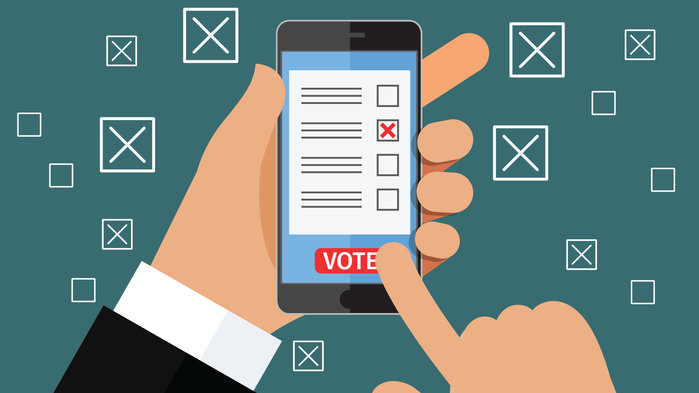

Some weeks ago, chairman of the Independent National Electoral Commission, INEC, Mahmood Yakubu announced the commission’s readiness to use electronic voting in some elections slated for next year.
The INEC boss noted that, the move is in response to the health threats posed by the ongoing covid-19 pandemic.
While promising to work towards the full introduction of electronic voting in major elections, starting from 2021.
He explained that it would give room for the trial run of the system for a decent period of two years before the 2023 general election.
The commission will also adopt electronic platforms for the submission of nomination forms by political parties ahead of governorship elections billed to take place this year.
In the Edo and Ondo elections scheduled for September 16 and October 10, 2020, facemasks will be mandatory for voters stepping into polling units, the commission has announced, amid the novel coronavirus pandemic.
Electoral officials, ad-hoc staff, security personnel and observers monitoring the vote will also use face masks in the governorship elections in both states.
Polling areas will be redesigned to ensure substantial compliance with established protocols such as physical distancing.
The commission also announced that infrared thermometers will be used at the various collation centers, alcohol-based hand sanitisers at the polling units for election officials while methylated spirit and cotton wool are to be provided for the disinfection of the smart card readers after the fingerprint of each voter is read.
The commission added that it would regularly clean up the biometric register of voters while continuous voter registration is suspended forthe time being to prevent the health risks associated with it in the context of COVID-19.
Nigeria, Africa’s most populous nation and largest economy, still votes and collates manually, even though registration for voting has been digitized.
Sadly, human interference in the balloting process has led to results being contested in courtrooms following allegations of widespread rigging.
Although, e-voting will discourage mass gathering of people, in line with the COVID-19 containment protocol, it has benefits far beyond the maintenance of physical distancing.
It has the potential to sanitise the electoral process, which is currently bogged down by violence, restriction of movements as well as the pathetic inability of the electoral body to overcome the challenges of logistics.
The announcement is commendable but there is the need for caution, e-voting can mean a variety of things, from voting via a device rather than a paper ballot to remote voting via smartphone.
According to report, fears that e-voting machines could be hacked have caused some to warn against their adoption in some countries.
When fully implemented, it will be the culmination of more than five years of the electoral body’s experimentation with technology in the organisation of elections.
The e voting system is expected to correct anomalies that have charaterised past elections in the country.
Countries that have adopted e-voting on the continent include Namibia, Democratic Republic of Congo while countries like Ghana and Kenya have had strong digital components in their elections.
According to data from the international institute for democracy and electoral assistance, globally, thirty three countries had already adopted e-voting as of 2018.
Although, it is believed to produce faster and more accurate results, it is not as if e-voting is a panacea for all election-related problems that have been burdening the country.
INEC and NOA have to complement e-voting with massive political education of the citizenry to address voter apathy disenfranchisement and above all, provision of constant power supply without which e-voting will be a mirage.
Titilayo Kupoliyi